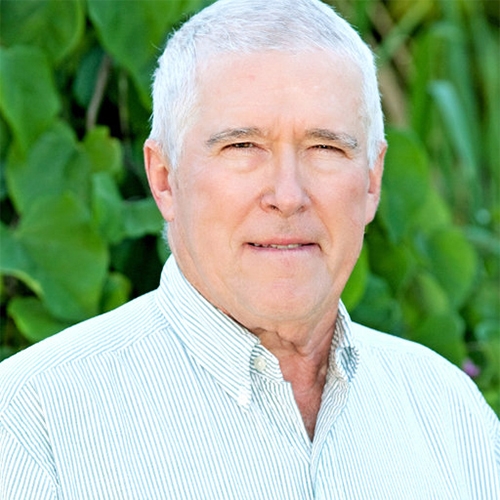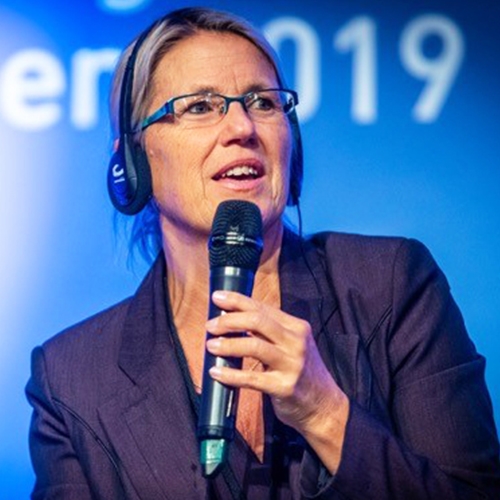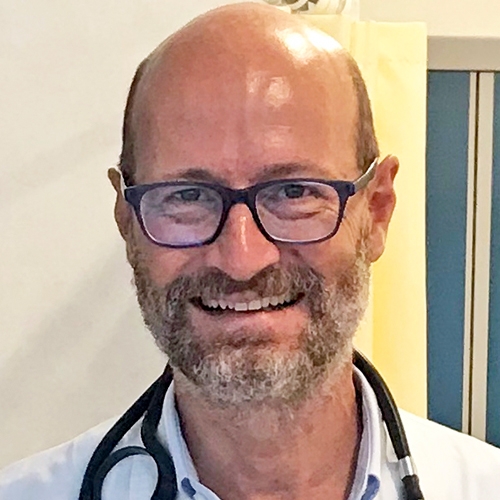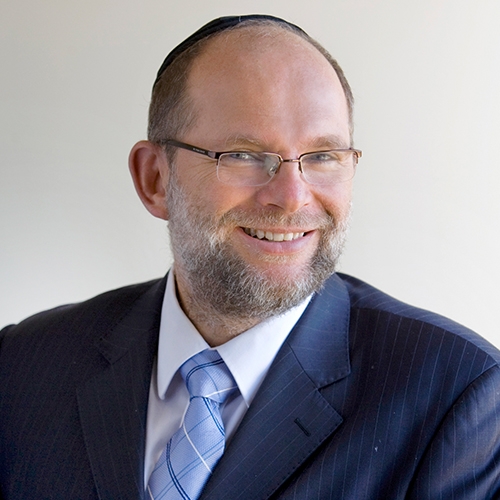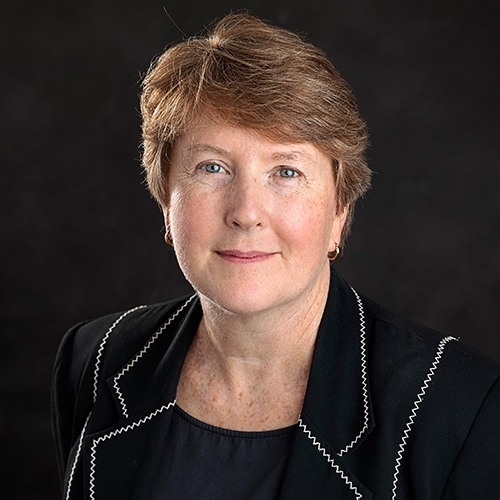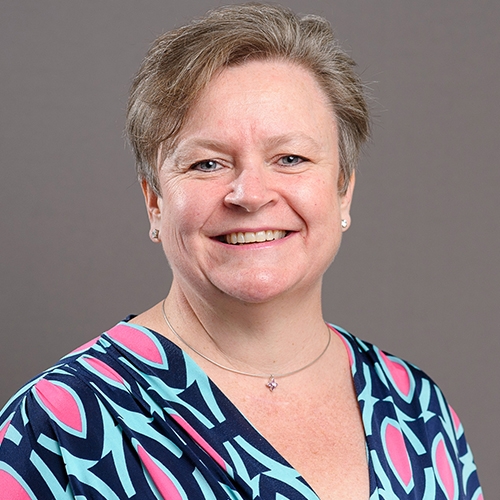 Conference Speakers
Conference Speakers
We're thrilled to introduce you to this year's Speakers. We've invited a fantastic panel of leading healthcare providers in the field Obstetrics presenting their invaluable education, through our unique online learning system. Our Professional Advisory Committee has identified emerging and hot topics that will provide you with a full spectrum of education.
We are pleased to present the line-up of main speakers below for our GOLD Obstetrics Online Conference 2020! These speakers have been selected by our program committee to ensure we are bringing you the most up to date and relevant content that we can. Click on "Topic Info" below to review further details on each presentation.
This year, we have 10 Speakers presenting a total of 10.5 hours of education in the main conference program!
Dr. André Lalonde has developed extensive knowledge and expertise in several areas of women’s health such as: risk management; assessment and development of collaborative care models; health programs to meet the unique health needs of aboriginal population; development and implementation of clinical practice and consensus guidelines; consumer health education programs; capacity building of health delivery systems in Canada and in low resource countries.
His expertise includes the implementation of safe motherhood programs, reduction of maternal mortality and morbidity programs and audits, management of clinical services in hospitals, risk management, sexual reproductive health, and partnership programs with low resource countries.
The International MotherBaby Childbirth Organization (IMBCO) and the International Federation of Gynecology and Obstetrics (FIGO) joined forces developing a single global initiative to provide guidance and support for safe and respectful maternity care. This work was built upon their previous initiatives and incorporates the most recent evidence and insights relating to quality maternal, newborn and child health provision. It also reflects much of the work being carried out by many organizations involved in maternal and newborn health throughout the world.
This initiative, The International Childbirth Initiative (ICI): 12 Steps to Safe and Respectful MotherBaby-Family Maternity Care was launched as a FIGO Presidential Initiative for 2018-2021 during the World Congress in Brazil in 2018 in a special side event with presentations from key partner organizations. ICI provides clear steps for the implementation of evidence-based maternity care worldwide, acknowledging the interaction between the MotherBaby dyad and Family environment as well as their interactions with health providers-and-systems. It provides a web-based platform of support for implementation and a self-initiated and self-reflective quality improvement cycle.
Mother, Midwesterner, and award-winning OB/GYN, Dr. Angela is equal parts best girlfriend and bold professional, supporting women’s health with innovative approaches to care and heavy doses of humor. Dr. Angela has done more than launch a successful practice, she has defined herself as a voice for a new generation of womanhood, established her ASK DR. ANGELA brand committed to authenticity, and built a community rooted in trust, candor, and compassion. Dr. Angela currently practices at Healthy Woman OBGYN in New Jersey where she practices both obstetrics and gynecology, with an emphasis on minimally invasive surgery; she is trained to use the Davinci Robot. Dr. Angela is on faculty at the Seton Hall University School of Medicine and is on staff at Jersey Shore Univerisity Medical Center where she participates in resident training.
“Wellness” is defined as an active process of becoming aware of and making choices towards a healthy and fulfilling life. As our understanding of epigenetics grows, it is obvious that pregnancy is a time when we need to be supporting our clients to take an active role in creating wellness in their lives. This presentation will review the pregnancy experience from start to finish, including preconceptional counseling; what it entails and why it is important. Review obstetric care from trimester to trimester with a focus on the key areas where opportunities for creating wellness exist. Both routine obstetric visits and high-risk pregnancies will be examined. Learn how to improve outcomes by engaging your clients in actively taking responsibility for improving their health and wellbeing through things such as healthy eating, exercise and self-care.
Catherine Nelson-Piercy is a Consultant Obstetric Physician at Guy’s and St. Thomas’ Hospitals Trust and Queen Charlotte’s and Chelsea Hospital in London. In 2010 she was awarded the title of Professor of Obstetric Medicine at King’s College London. Her undergraduate studies were at King’s College, Cambridge University and St Bartholomew’s Hospital, London. She trained as a physician, and was taught Obstetric Medicine by Professor Michael de Swiet.
Professor Nelson-Piercy is past President of the International Society of Obstetric Medicine (ISOM). She was founding co-editor in chief of the journal ‘Obstetric Medicine: the medicine of pregnancy.’
Professor Nelson-Piercy has been involved in the development of several evidence-based National Guidelines notably for “Contraception in Women with Heart Disease”, BTS / SIGN “Asthma in Pregnancy” and RCOG Green top guidelines on “Reducing the risk of thromboembolism during pregnancy, birth & the puerperium” and ‘Management of nausea vomiting of pregnancy and hyperemesis gravidarum”. She has over 200 publications and has edited six books and written the successful Handbook of Obstetric Medicine, now in its sixth edition. She is also one of the central physician assessors for the UK Confidential maternal deaths enquiry.
Women are delaying pregnancy until older ages and fertility treatments mean that age is no longer a barrier to reproduction. Therefore women are more likely to have co-morbidities such as diabetes, hypertension, obesity and other chronic medical problems. Medical problems represent a more common cause of death in pregnancy and the puerperium than direct obstetric conditions. The most common cause of death in pregnancy in the developed world is cardiac disease. This lecture will discuss the most serious and most common presentations of medical problems on the labour ward and highlight important aspects of management. Effective management requires team work particularly with physicians, midwives and obstetric anaesthetists.
Causes of breathlessness, chest pain, headache and seizures will be covered and the management of asthma, pneumonia, acute coronary syndrome, pulmonary oedema, aortic dissection, pulmonary embolism discussed.
Diogo Ayres-de-Campos is currently Associate Professor at the Medical School - University of Lisbon, Portugal, and Chair of the Obstetrics Department of the Santa Maria University Hospital, Lisbon. Until December 2016 he was at the Medical School University of Porto and S. Joao Hospital in Porto, where he was Associate Professor, Senior Consultant, Director of the labour ward in 2004-2008, and coordinated post-graduate studies in Obstetrics & Gynecology in 2008-2011.
His main scientific areas of interest are intrapartum fetal monitoring and obstetric simulation. He is a co-inventor of the “Omniview-SisPorto®” program for computer analysis of fetal monitoring signals (Speculum, Lisbon, Portugal, 2006), the clinical record database Obscare (Virtualcare, Porto, Portugal), and was the medical consultant for the development of the “Lucina®” obstetric simulator (CAE Healthcare, Montreal, Canada, 2014).
He has published 130 papers in international Medline-indexed journals, edited 2 international books, authored 18 international book chapters, and has given 182 invited lectures at international scientific meetings. He was Editor-in-chief of the “Acta Obstetrica e Ginecologica Portuguesa” 2006-2010, and Associate Editor of “ISRN Obstetrics and Gynecology” 2012-2014. He chaired the scientific committee of the 1st , 2nd and 3rd European Congress of Intrapartum Care (ECIC).
He is the President-elect of the “European Association of Perinatal Medicine - EAPM” and was Secretary General of this society from 2016-2018. He is Council Member of the “European Board and College of Obstetrics and Gynecology - EBCOG”, and co-ordinator of EBCOG Part 2 Exam. Between 2010 and 2018 he integrated the “Safe Motherhood and Newborn Health committee” at the “International Federation of Obstetrics and Gynecology - FIGO”, where he co-ordinated the 2015 revision of the “FIGO guidelines on intrapartum fetal monitoring”. He participated in the World Health Organisation consensus panels for “Recommendations on antenatal care” and “Intrapartum care and reduction of unnecessary caesarean section”.
Continuous cardiotocography (CTG) remain widely used for intrapartum fetal monitoring, despite the conflicting evidence regarding the benefits of such approach when compared with intermittent auscultation. Existing evidence on this topic will be re-analysed, together with the need to improve specific aspects of the CTG technology in order to achieve the best outcomes. Central fetal monitoring and computer analysis of CTGs is also widely disseminated in industrialised countries. Existing systems will be compared with an emphasis on system characteristics and demonstrated benefit.
Fedro Peccatori is a medical and gynecologic oncologist whose clinical activities mainly include diagnosis and treatment of breast cancer, gynecological malignancies and tumors of young adults. He is Director of the Fertility and Procreation Unit within the Division of Gynecologic Oncology at the European Institute of Oncology, Milan, Italy.
His main research projects deal with fertility preservation and counselling in young oncological patients, pharmacological protection of ovarian function during chemotherapy, clinical and molecular characterization of pregnancy associated cancers and research protocols for the treatment of breast and gynaecological malignancies during pregnancy.
He has acted as lecturer in a number of international meetings, and holds a teaching contract with the University of Milan. He has received research grants from the Italian Ministry of Health and has acted as referee for a number of international journals, being part of the Editorial Board of Tumori Journal and Journal of Human Lactation. He’s member of the European Society of Medical Oncology task force Adolescent and Young Adult and faculty member for breast cancer. At present, he acts as Scientific Director at the European School of Oncology, where he’s in charge of organizing and supervising international courses and masterclasses on different oncological issues.
Breast cancer is the most common cancer diagnosed during pregnancy. The incidence of breast cancer in pregnancy is expected to rise since women tend to postpone childbearing and the incidence of breast cancer increases with age. The management of this situation is a clinical challenge for all the involved health care providers and relies on multidisciplinarity and shared decision making with the patient and her partner. Diagnostic imaging and staging may be safely performed during pregnancy, favoring methods without ionizing radiations (e.g. ultrasound and MRI). Surgery is possible throughout the whole pregnancy. Chemotherapy can be safely administered to the mother starting from the second trimester, without fetal impairment. Data about the impact of chemotherapy on subsequent child development are reassuring, but long term follow-up is needed.
In this lecture we will present an overview of the current knowledge about the biology, prognosis and treatment options of breast cancer during pregnancy, highlighting results of recent research on neonatal outcome and recommendations concerning prenatal care!
Dr. Denney is an Associate Professor of Maternal-Fetal Medicine at Wake Forest School of Medicine in Winston-Salem, NC. He joined the faculty in 2013 after his MFM fellowship at The University of Wisconsin--Madison. Dr. Denney has a joy of teaching and has given a number of lectures locally, regionally, and nationally. He has a keen interest in improving maternal and fetal outcomes and serves as OB Physician Champion of the Northwest Region for the North Carolina Community Care Network. His research interests include hypertensive disorders of pregnancy/preeclampsia, indicated preterm birth, obesity in pregnancy, and immune modulation of pregnancy. Dr. Denney's research efforts have led to over 20 publications and over 40 presentations at regional and national meetings.
Background: Simply stated, preeclampsia is new-onset hypertension with proteinuria during gestation. However, preeclampsia is complex, virtually affects every organ and is often confused with other entities--imitators of preeclampsia.
Methods: My aim is to provide clinicians with a working framework. Such framework is key in identifying underlying disease processes that mimic or predispose patients toward developing hypertensive disorders and evolving manifestations (eg, renal failure in SLE).
Results: Select data will be reviewed to tie in insights with numerous portals and pathophysiologic processes that lead to pre-eclampsia, hypertensive disorders or pregnancy and the so-called imitators of preeclampsia (eg, AFLP, HELLP, SLE, TTP-HUS). Underlying processes or preexisting chronic diseases all lead to an assortment of physiologic dysfunctions affecting uterus and kidney with or without additional organ involvement.
Conclusion: Many disease processes predispose toward preeclampsia and/or imitators of preeclampsia. Regardless of background and ultimate pathway, over-arching principles are shared.
Dr. Barrett is the Chief of Maternal Fetal Medicine at Sunnybrook Health Sciences Centre and a Professor of Obstetrics and Gynecology at the University of Toronto. He is a Senior Scientist at the Sunnybrook research Institute and the Program Research Director of the Women and Babies Program. He is the medical co-director of Clinical Trial Services at Sunnybrook Health Sciences Centre and holds the Waks Family Research Chair of Maternal Fetal Medicine Research. He is a World Health Organization advisor on Maternal Health, Vice Chair of the Board of the Society of Obstetricians and Gynaecologists and the International Society of Twin Research, and President of the Canadian Society of Maternal Fetal Medicine. He is the Founder and Chair of the Southern Ontario Obstetrical Network (SOON). He has recently been appointed Vice Chair Quality for the Department of Obstetrics, University of Toronto. He has held more than $20 million in grants, most prominently in the conduct of randomized controlled trials, wherein he has obtained international recognition in the field of multiple pregnancy. More recently his research has been channeled to both improving outcomes and preventing the occurrence of preterm birth via population interventions.
This Presentation will prevent an update on the latest incidence, etiology and pathophysiology of a twin pregnancy. We will discuss ultrasound imaging and the importance of chorionicity's determination and then follow a typical patient through pregnancy with key points for the diagnosis and treatment of complications. Special mention will be made of the latest evidence of preterm birth prevention in twins and thereafter will talk about twin birth and particularly the twin birth study.
Kirsten is an Australian specialist obstetrician gynaecologist, with years of experience in both the public and private sectors. She is a member of the Griffith University Midwifery teaching team, focussing on anatomy, physiology, pharmacology, and evidence-based practice. Kirsten has recently completed a PhD, focussing on the social effects of central fetal monitoring on the work of maternity clinicians. She is a member of the Transforming Maternity Care Collaborative and has ongoing research interests in fetal monitoring, supporting physiological labour and birth, inter-professional power in maternity care, and the social organisation of healthcare systems.
Quality research evidence demonstrates that intrapartum Cardiotocography monitoring in either low or high-risk populations fails to improve perinatal outcomes but drives harm by increasing the surgical birth rate. This evidence is not new, and obstetrics claims to be an evidence-based profession, yet there has been little interest or success in reducing the use of intrapartum CTG monitoring. This presentation draws on doctoral research which makes visible why it is so hard to align practice with evidence and challenges clinicians and leaders in our profession to rethink intrapartum fetal heart rate monitoring.
Nathan Riley, MD, is an OBGYN and hospice physician in Louisville, KY. He also works remotely as a telehealth palliative care physician for Resolution Care. He is the host of the Obgyno Wino Podcast (www.obgynowino.com) and is a Co-Founder/CMO of Major Care (www.thatismajor.com), a remote postpartum doula service. In 2021, he will be launching a holistic, remote gynecology service. When he's not connecting with his patients, you can find him mountain biking, climbing, gardening, or blowing raspberries on his daughter's belly.
Principles of palliative medicine can benefit all medical disciplines, but none more so than obstetrics and gynecology. I will be discussing fundamentals of symptom management and helping to illustrate how patient-centered medical decision-making is of critical importance to birth work and the support of women in healthcare. Learn more about the principles of palliative medicine, a palliative approach to birth planning, a framework for breaking bad news and the importance of holding space.
Sally is a Consultant Obstetrician subspecializing in Feto-Maternal Medicine at the John Radcliffe Hospital in Oxford and an Associate Professor in the Nuffield Department of Women’s and Reproductive Health, University of Oxford.
Sally graduated in Clinical Medicine from the University of Oxford and specialized in Obstetrics, training within the Oxford region during which time she completed a PhD in Placental Ultrasound. Sally is currently a Consultant Obstetrician in a busy NHS Trust and has set up the Oxford FMU Placenta Clinic which provides a tertiary referral service for Placenta Accreta Spectrum (PAS).
She is highly research active having authored over 100 cited articles and won several international research awards. She currently holds a substantial grant from the NICHD Human Placenta project. She is recognised for her expertise in placenta accreta spectrum (PAS) and co-authored the RCOG and FIGO guidelines on diagnosis and management of PAS. She is currently working with NHS England to develop a national network for the diagnosis and management of PAS. She is the UK representative to, and elected Vice-Chairperson of, the International Society for abnormally invasive placenta (AIP, the invasive end of the spectrum) and is the lead author on their recent evidence-based guidelines for the management of AIP. She continues to strive to improve the outcomes for women affected by this rare and complex condition.
Placenta accreta spectrum (PAS) is a rare iatrogenic pregnancy complication with an increasing incidence worldwide. PAS can cause serious maternal morbidity and even mortality at delivery. The aim of this presentation is to discuss the pathophysiology of the condition including: an explanation of the risk factors and how they lead to developing different severities, current policies for screening and the evidence behind the recommended management strategies.
 Dr. Speakers Full Name
Speaker Credentials
Dr. Speakers Full Name
Speaker Credentials
Annet Mulder first became interested in breastfeeding in the year 2000, when she became a mother for the first time. During and because of her own breastfeeding experiences, in 2002 she became a volunteer with the Dutch breastfeeding Organization and in 2008 sat for and passed the exam administered by the International Board of OBGYN Consultant Examiners. As an International Board Certified OBGYN Consultant, she now
Annet Mulder first became interested in breastfeeding in the year 2000, when she became a mother for the first time. During and because of her own breastfeeding experiences, in 2002 she became a volunteer with the Dutch breastfeeding Organization text text text text more name mulder first became interested in breastfeeding in the year 2000, when she became.
 Dr. Speakers Full Name
Speaker Credentials
Dr. Speakers Full Name
Speaker Credentials

